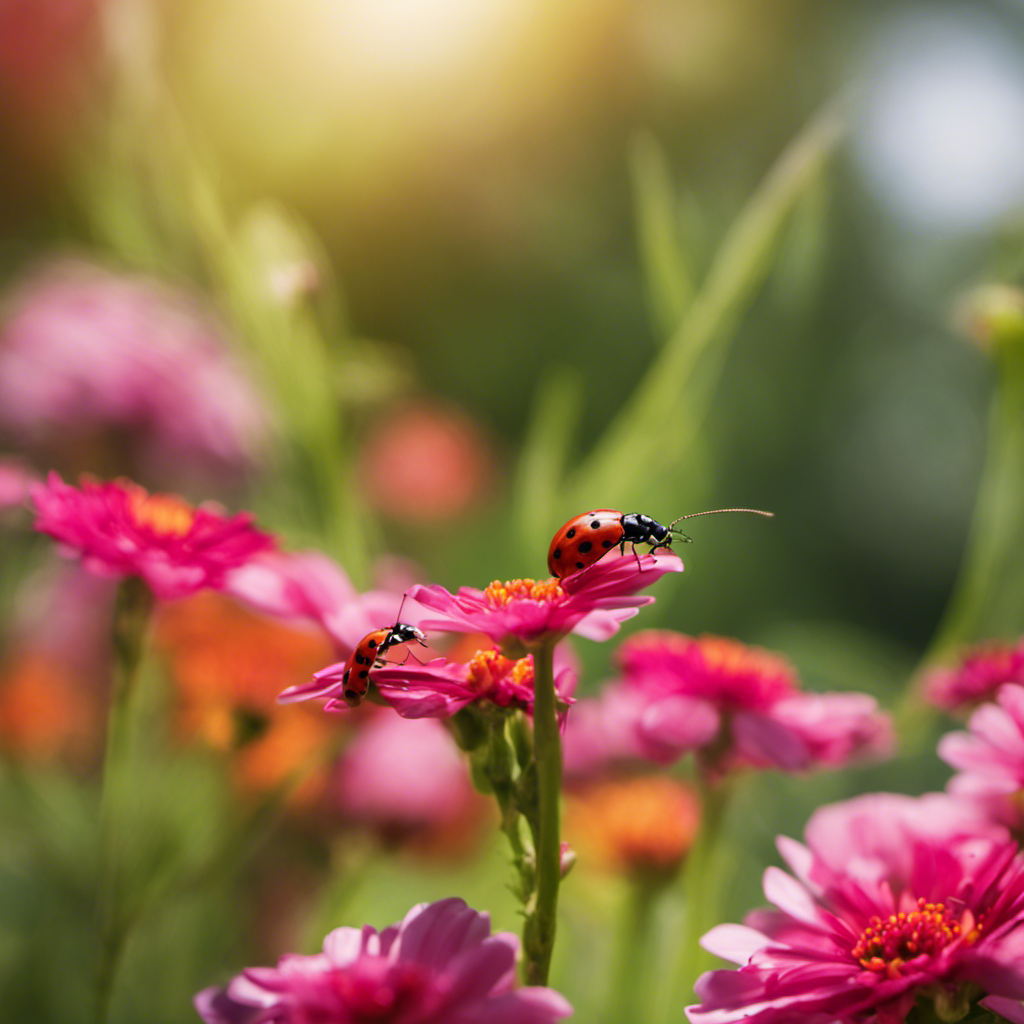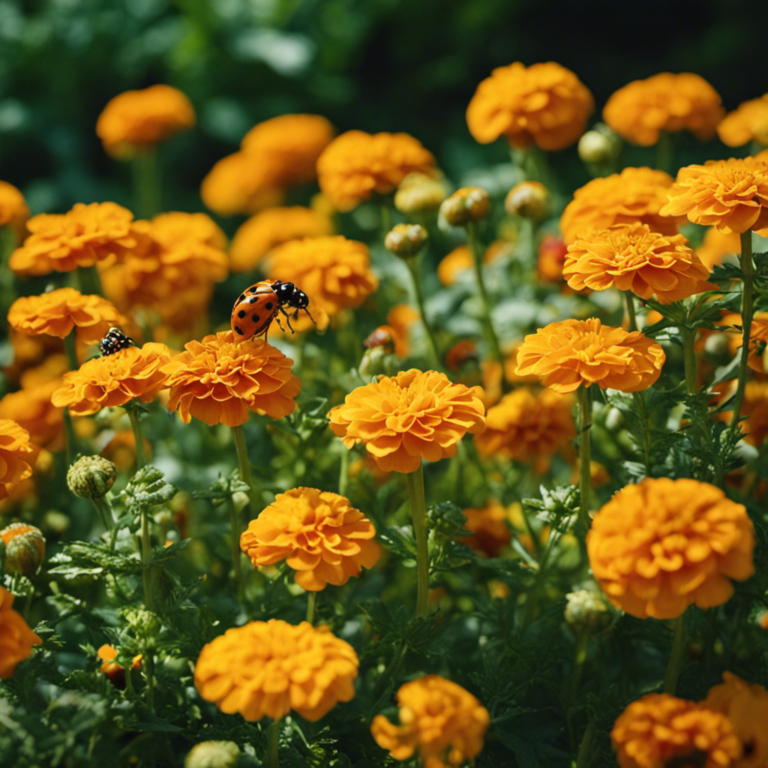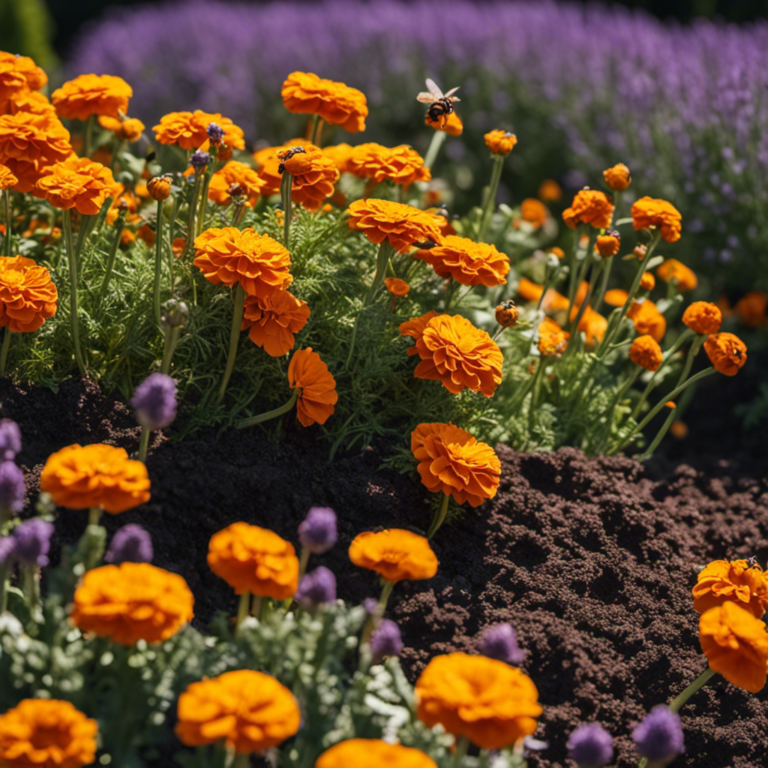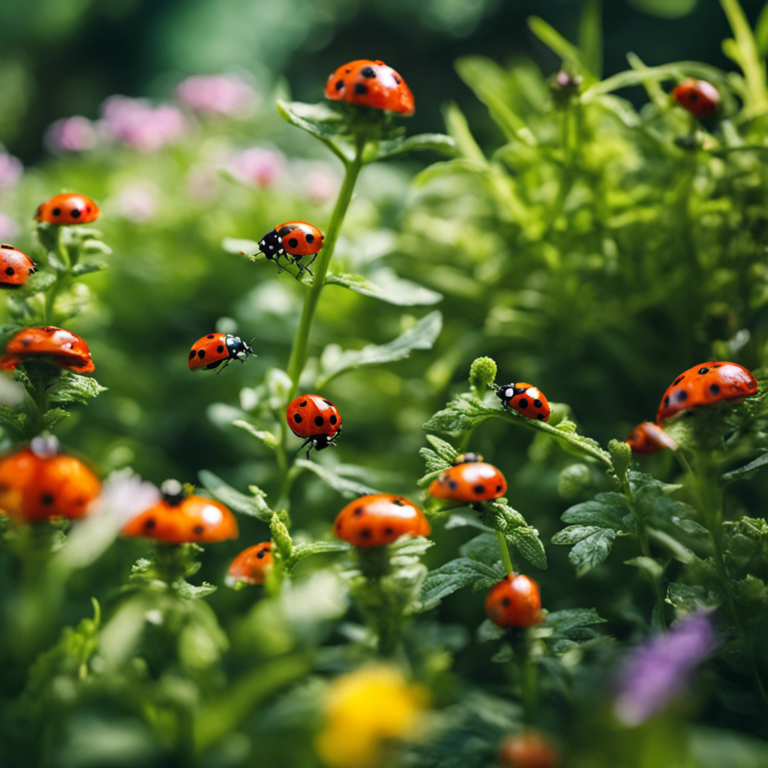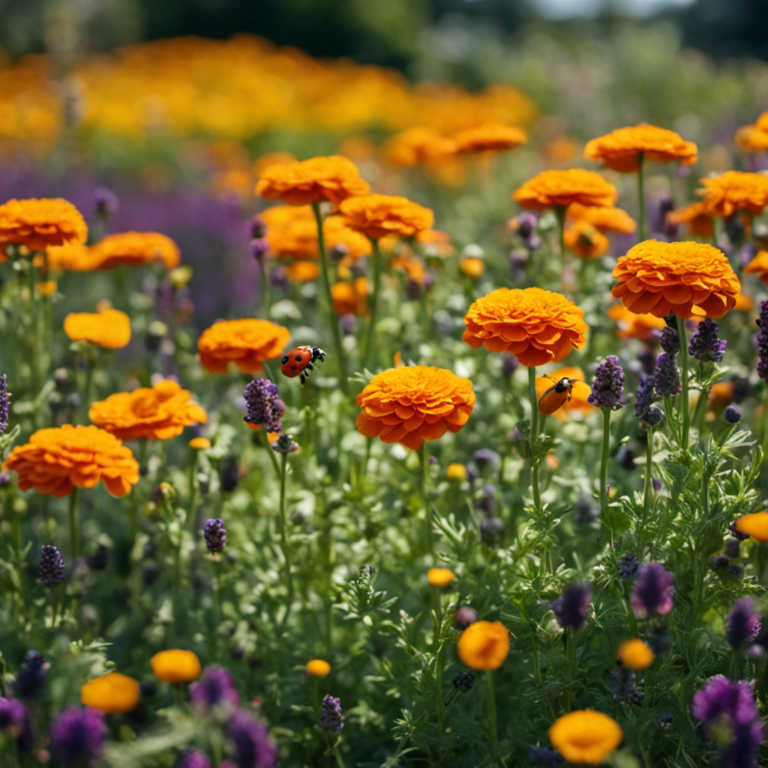Are you dealing with annoying pests? Say goodbye to those pests with nature-friendly pest busters!
In this article, we’ll show you how to effectively handle those pesky critters using organic methods that are both safe for you and the environment.
From utilizing natural predators to practicing companion planting and creating your own DIY pest control recipes, we have all the solutions you need.
Get ready to reclaim your home and garden from these unwanted intruders and live in harmony with nature.
It’s time to bid farewell to pests in an eco-conscious way!
Key Takeaways
Protecting our homes and gardens from pests doesn’t require harmful chemicals. Instead, we can turn to nature-friendly options for pest control. By using organic methods like attracting natural predators and practicing companion planting, we can effectively bid farewell to pesky critters without causing harm to the environment. These eco-conscious solutions not only help maintain a healthy ecosystem but also provide effective ways to deter pests. Let’s embrace a green approach and create a harmonious balance in our surroundings by saying goodbye to unwanted guests. Remember, nature has its own pest busters!
Benefits of Organic Pest Control
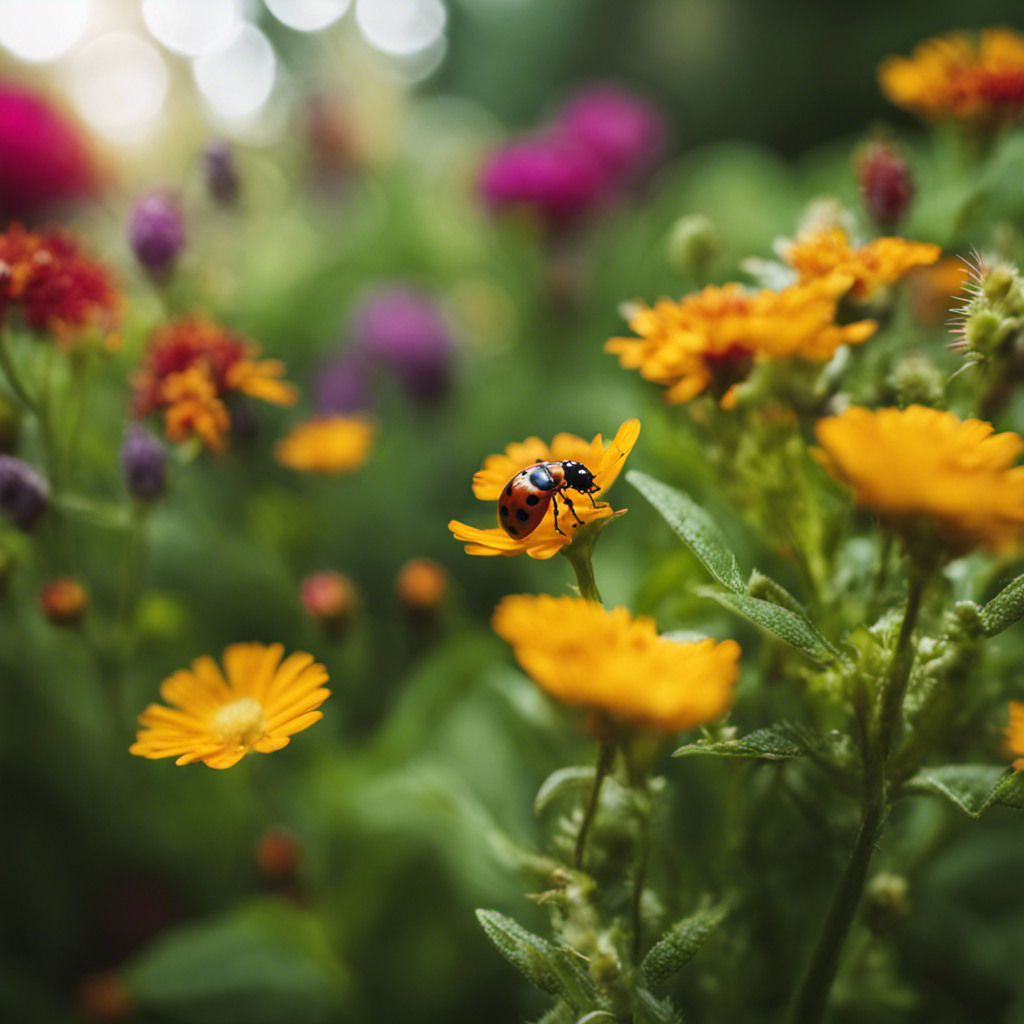
Experience the Benefits of Organic Pest Control All Year Round
Using natural pest repellents offers a multitude of benefits for your home and garden. Not only do these methods protect against harmful insects, but they also play a crucial role in preserving biodiversity. Unlike chemical pesticides, organic pest control methods prioritize the well-being of beneficial organisms, such as bees, ladybugs, and earthworms.
These natural repellents are designed to target specific pests while leaving other creatures unharmed. By promoting biodiversity in your garden, you create a balanced ecosystem where pests are naturally kept in check. This reduces the reliance on synthetic pesticides and helps safeguard the environment.
One of the great advantages of organic pest control is its safety for children and pets. You can rest easy knowing that your living space is free from toxins and harmful chemicals. Embracing organic pest control is a simple yet effective way to ensure the health and well-being of your family and the environment.
Common Organic Pest Control Methods
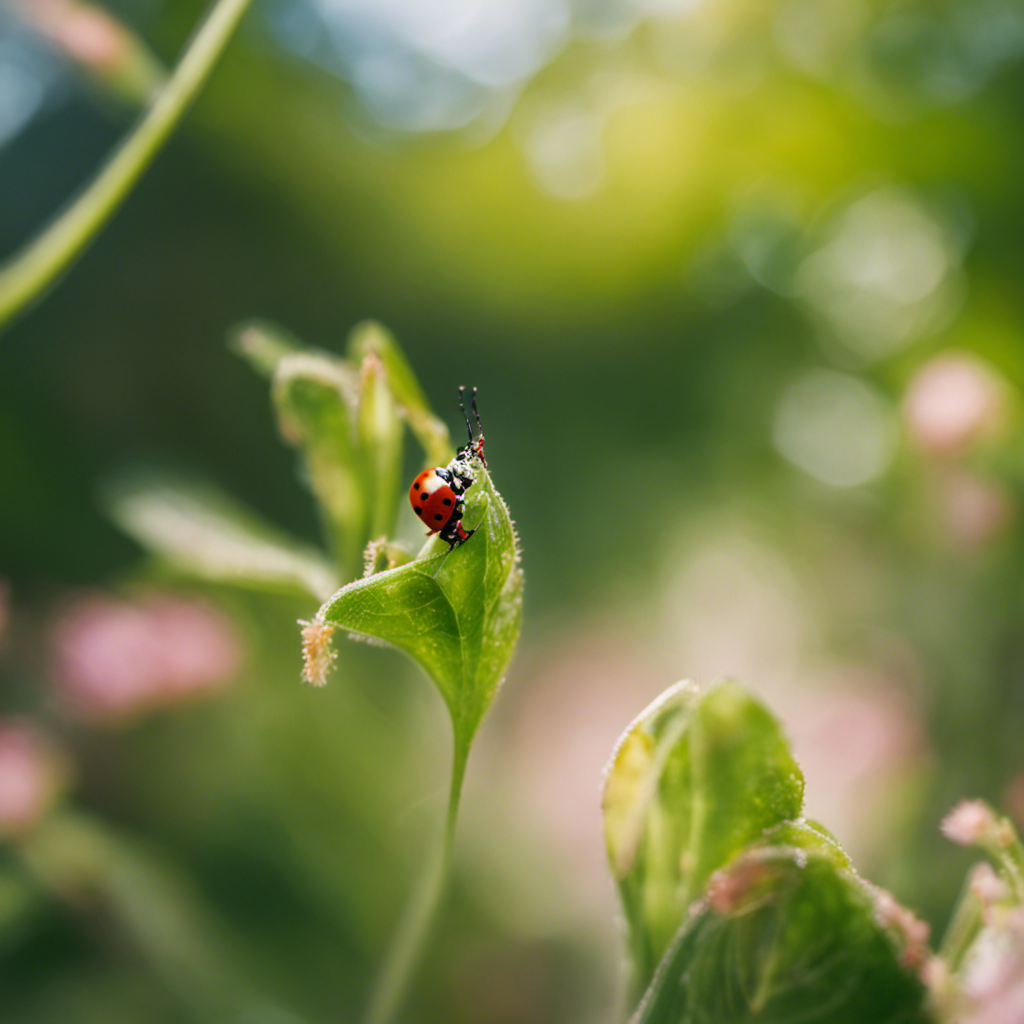
Continuing our discussion on the benefits of organic pest control, let’s now explore some common methods that can help you effectively manage pests in an eco-friendly manner.
-
Using Essential Oils: Essential oils, such as peppermint, lavender, and neem oil, have natural properties that repel pests. These oils are safe for both humans and the environment, making them a great alternative to chemical-based pesticides. Not only do they keep pests away, but they also leave a pleasant scent in your home or garden.
-
Biological Control: Another effective method is to introduce natural predators or parasites that feed on pests. For example, ladybugs can be used to control aphids in your garden. This method helps maintain a natural balance and reduces the need for harmful chemicals.
While organic pest control methods have many benefits, it’s important to be aware of their limitations. Some disadvantages include:
-
Limited Effectiveness: Organic pest control methods may not be as potent as chemical pesticides, and they may require more frequent applications to achieve the desired results.
-
Time and Patience: Organic pest control methods often take longer to work, requiring patience and persistence on your part.
Natural Predators for Pest Control
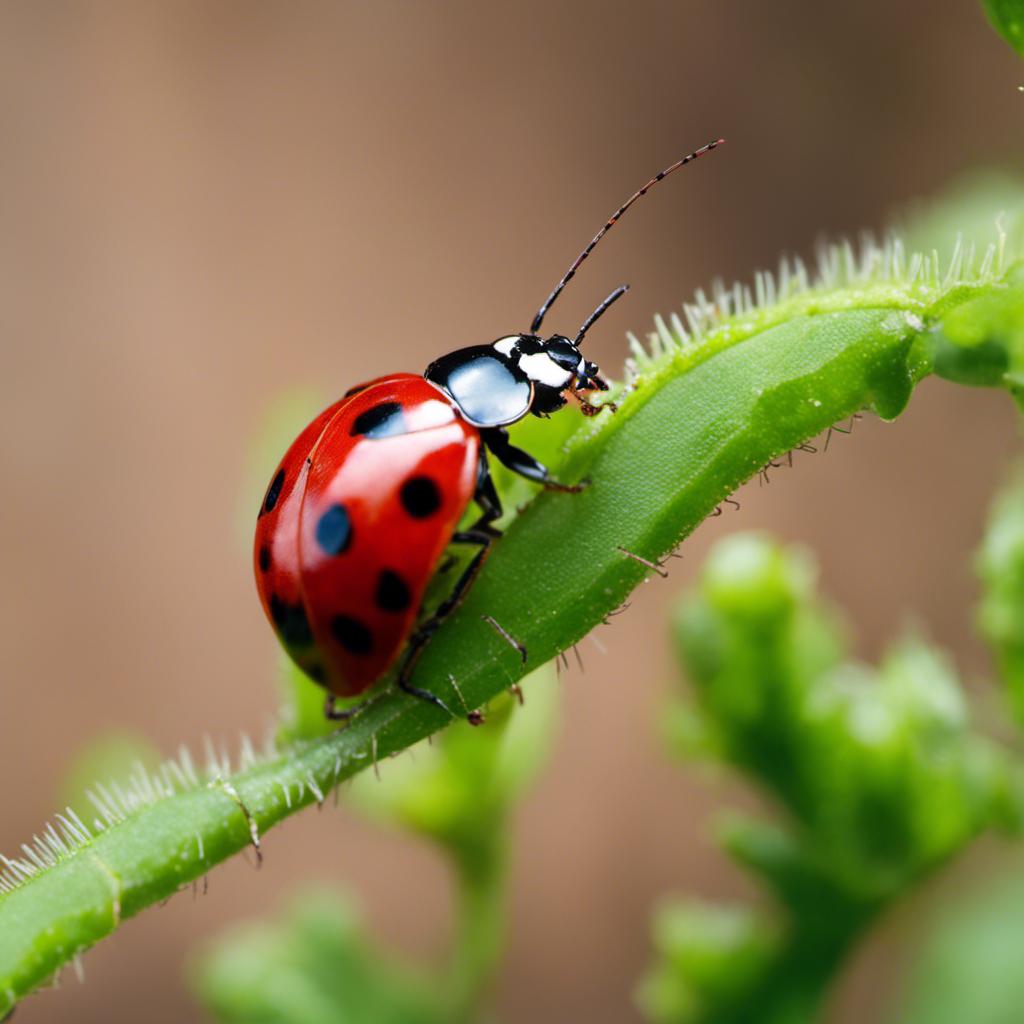
Exploring Organic Pest Control: Natural Predators for Pest Management
When it comes to managing pests in an eco-friendly and safe way, utilizing natural predators can be highly effective. Instead of resorting to harmful chemicals, attracting beneficial insects to your garden is a natural and sustainable method.
Ladybugs and lacewings are examples of these helpful insects that feed on pests like aphids and mites, effectively keeping their populations in check. To attract these beneficial insects, consider planting flowers such as daisies, marigolds, and sunflowers, as they provide a source of nectar and pollen for these predators.
Another organic pest control option is the use of essential oils. Certain oils, like peppermint and neem oil, possess natural insect-repelling properties. By diluting these oils with water and spraying them around your home or garden, you can effectively deter pests without relying on harmful chemicals. This approach not only helps control pest populations but also promotes a healthy and sustainable environment.
In summary, natural predators and essential oils offer effective alternatives for pest control. By incorporating these methods into your pest management strategy, you can achieve a pest-free environment while prioritizing the well-being of your garden and ecosystem.
Companion Planting to Deter Pests
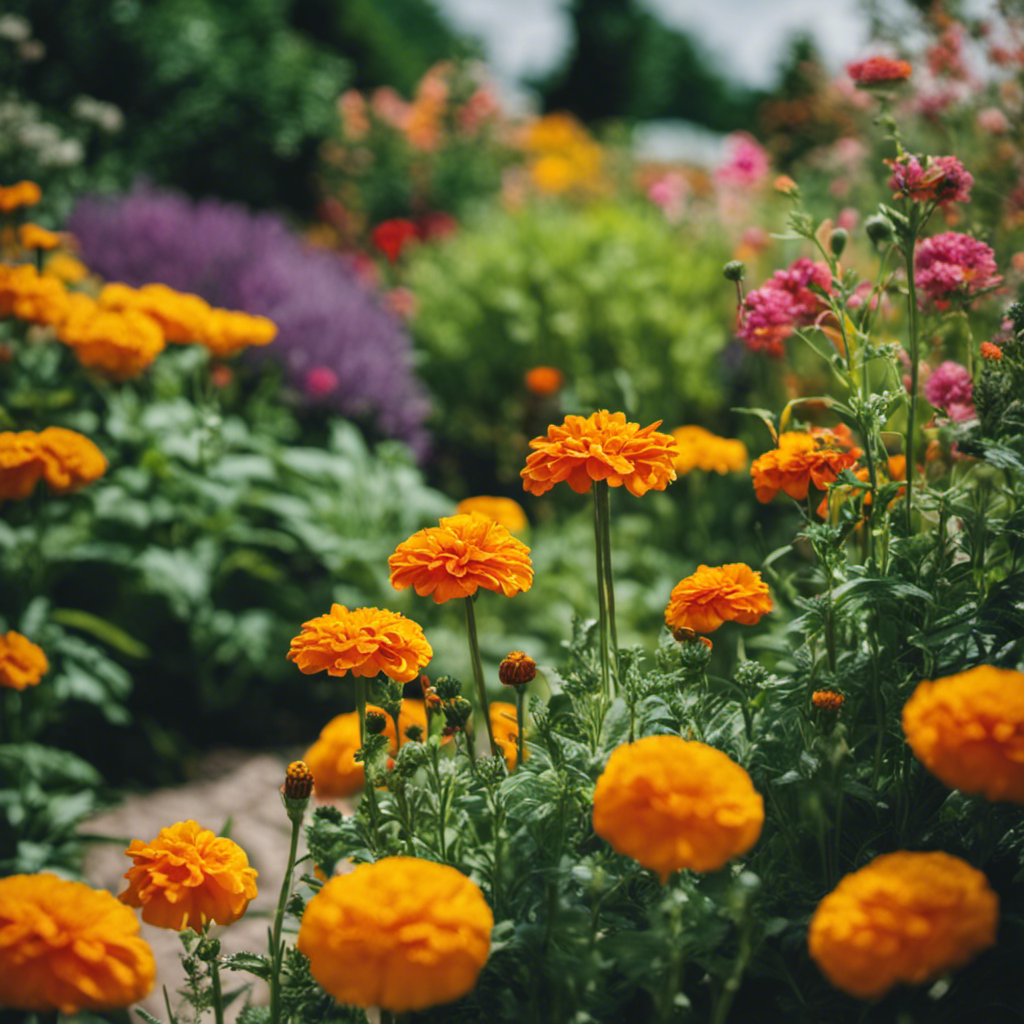
Incorporating companion planting into your gardening practices can be a natural and effective way to deter pests and promote healthy growth. By strategically planting certain combinations of crops, you can create a balanced ecosystem that naturally repels unwanted insects.
Here are two examples of plant combinations that can improve crop yields and help deter pests:
-
Marigolds and tomatoes: Marigolds emit a strong scent that repels nematodes, aphids, and whiteflies, which are common pests for tomatoes. Planting marigolds around tomato plants can help protect them from these destructive insects.
-
Basil and peppers: Basil not only adds a delicious flavor to your meals but also repels pests like aphids, flies, and mosquitoes. Planting basil alongside pepper plants can deter these pests and improve the overall health of your pepper crop.
DIY Organic Pest Control Recipes

Try these easy DIY recipes for organic pest control to keep your garden free from unwanted insects. Making your own homemade pest repellents isn’t only affordable but also environmentally friendly.
Here are three effective recipes you can try:
-
Garlic Spray: Crush 10 garlic cloves and mix them with a quart of water. Let the mixture sit overnight, then strain it and pour it into a spray bottle. Use this spray on your plants to repel pests.
-
Neem Oil Spray: Mix 2 tablespoons of neem oil, 1 gallon of water, and 1 teaspoon of liquid soap. Pour the mixture into a spray bottle and apply it to your plants to deter pests.
-
Vinegar Solution: Mix equal parts vinegar and water in a spray bottle. Spray this solution directly onto your plants to repel insects.
These homemade pest control recipes aren’t only effective but also safe for your garden and the environment. Give them a try and say goodbye to unwanted pests without using harmful chemicals.
Conclusion
Protecting our homes and gardens from pests doesn’t mean we have to resort to harmful chemicals. Instead, we can turn to nature-friendly options for pest control.
By using organic methods like attracting natural predators and practicing companion planting, we can effectively say goodbye to pesky critters without causing harm to the environment.
These eco-conscious solutions not only help maintain a healthy ecosystem but also provide effective ways to deter pests.
Let’s embrace a green approach and create a harmonious balance in our surroundings by bidding farewell to unwanted guests.
Remember, nature has its own pest busters!
